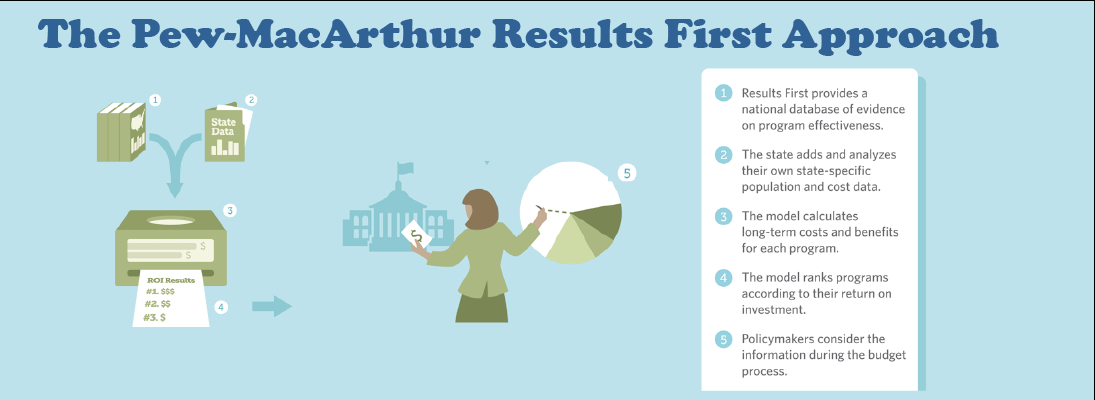
Pew-MacArthur Results First Initiative
In 2013, the General Assembly created the Results First Policy Oversight Committee to oversee and guide the Pew-MacArthur Results First Initiative in Connecticut. This project started in March 2011 to apply cost-benefit analysis to state policy and budget decisions. The project staff of the Institute for Municipal and Regional Policy at Central Connecticut State University have been working with the Judicial Branch’s Court Support Services Division and the departments of Correction, Mental Health and Addiction Services, and Children and Families to implement Results First in Connecticut.
From the Results First Initiative’s report Evidence – Based Policymaking: A Guide for Effective Government
Governments make budget and policy choices each year that have long-term effects on both their fiscal futures and the outcomes they deliver for constituents. Recognition is growing that policymakers can achieve substantially better results by using rigorous evidence to inform these decisions, enabling governments to select, fund, and operate public programs more strategically. Until now, however, no comprehensive road map has provided clear guidance on using this approach.
To fill this gap, the Pew-MacArthur Results First Initiative has developed a framework that governments can follow to build and support a system of evidence-based policymaking. Based on an extensive review of research and in-depth interviews with government officials, practitioners, and academic experts, the framework identifies steps that both the executive and legislative branches can take to drive the development, funding, implementation, and monitoring of policies and programs.
The framework has five key components, each with multiple steps that enable governments to make better choices through evidence-based policymaking: (1) program assessment, (2) budget development, (3) implementation oversight, (4) outcome monitoring, and (5) targeted evaluation.